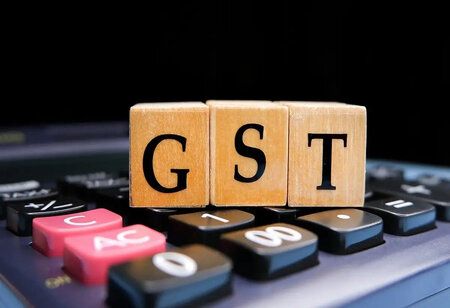By Global Consultants Review Team
 India is gearing up for the most significant revamp of the Goods and Services Tax (GST) system since it was introduced in 2017. According to a report by The Economic Times, the Prime Minister’s Office (PMO) has given in-principle approval for a wide-ranging restructuring of the GST framework. The proposed reforms are expected to be discussed in the upcoming GST Council meeting in August, after the monsoon session of Parliament.
India is gearing up for the most significant revamp of the Goods and Services Tax (GST) system since it was introduced in 2017. According to a report by The Economic Times, the Prime Minister’s Office (PMO) has given in-principle approval for a wide-ranging restructuring of the GST framework. The proposed reforms are expected to be discussed in the upcoming GST Council meeting in August, after the monsoon session of Parliament.
The Finance Ministry has already started reaching out to states to build consensus and is holding consultations with key ministries to shape the final proposal. The planned revamp is expected to focus on two major areas—rationalising GST rate slabs and simplifying compliance processes. The objective is to ease the burden on consumers and businesses while making the tax system more efficient.
One of the big changes being considered is the removal of the 12 percent tax slab. Goods currently under this category may be shifted to either the 5 percent or 18 percent slab. Presently, GST has five main tax slabs—0 percent, 5 percent, 12 percent, 18 percent, and 28 percent—along with lower slabs of 0.25 percent and 3 percent for bullion and precious stones. Government data shows that 21 percent of items are currently taxed at 5 percent, 19 percent at 12 percent, 44 percent at 18 percent, and only 3 percent fall under the 28 percent slab.
Efforts to rationalise rates have been discussed before, but progress has been slow. With India’s economic indicators strong and important trade agreements on the horizon, the government sees this as an ideal time for reform. The review will also examine the future of the compensation cess, which is currently levied on so-called ‘sin goods’ like tobacco and luxury vehicles. Originally meant to help states recover revenue losses from the GST rollout, the cess was extended until March 2026 to repay ₹2.69 lakh crore borrowed during the pandemic. A separate ministerial group is looking into how the surplus funds from this cess should be used in the future.
The GST overhaul comes at a time when the government is also planning to introduce a new income tax law, which is likely to be presented during the current monsoon session.
We use cookies to ensure you get the best experience on our website. Read more...